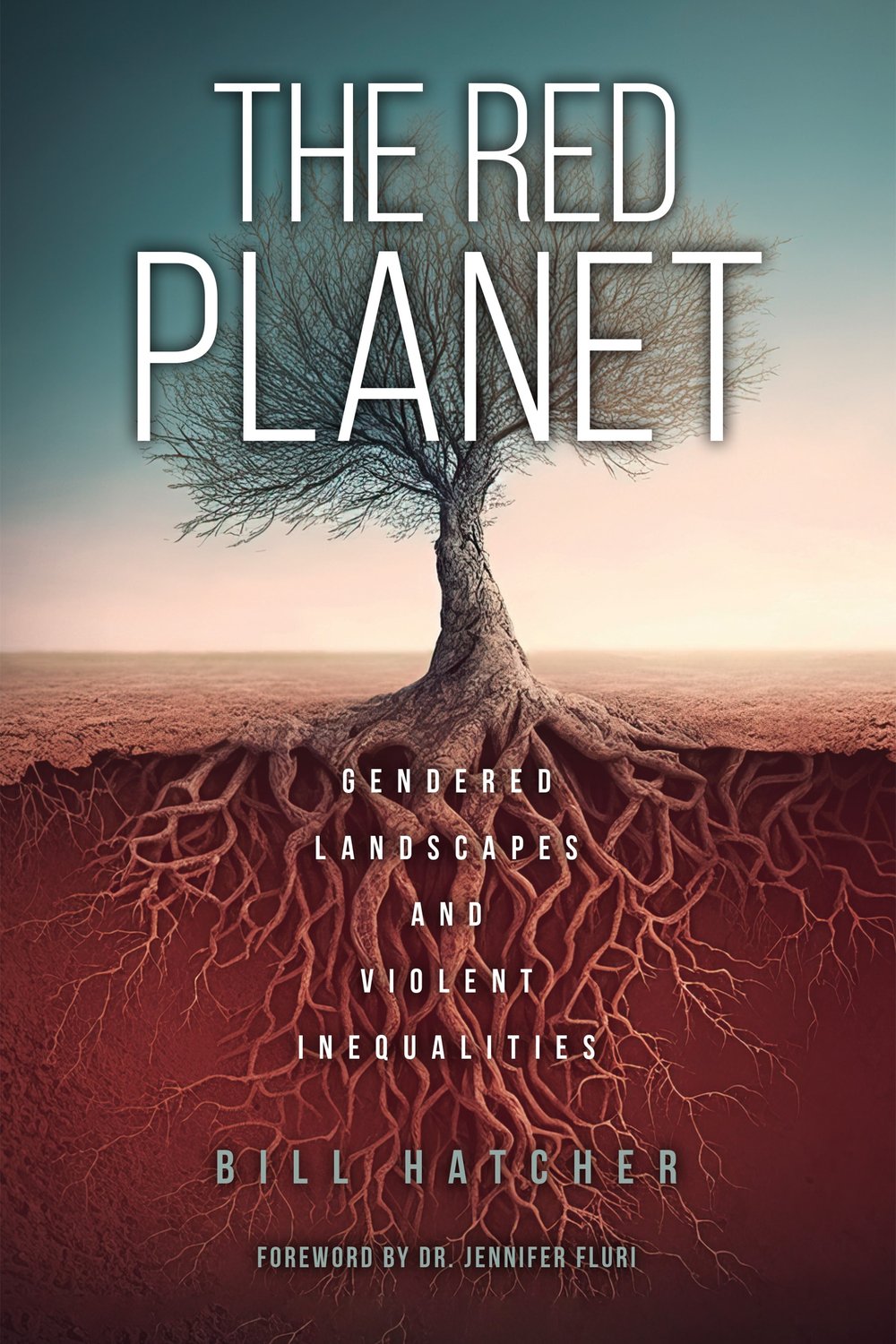The Red Planet
Gendered Landscapes and Violent Inequalities

The Red Planet explores why humans went from being peaceful and egalitarian with a preference for plant food to a hyper-masculine paradigm with consequences ranging from misogyny, racism, and environmental abuse to animal cruelty, classism, and warfare.
We humans have an extraordinary capacity for compassion. Much of it is in response to the atrocities we inflict on the planet, its animals, and each other. The popular explanation for this paradox is that we evolved as carnivorous “killer apes,” who gradually curbed our lust for violence, with frequent exceptions, by implementing humane social norms. This explanation is so well worn, especially in the American psyche, that it epitomizes cliché. So, we could be forgiven for believing it, when nearly every word is fiction.
Current research shows that our species narrowly survived extinction in the last Ice Age only because we evolved to become inherently friendly, conciliatory, and nonviolent—all feminine attributes. During that time, we retreated into rich, verdant landscapes that contained foods that didn’t run away from us or bite back; plant foods that our bodies preferred. The verdict is clear: Our original biological and social programming is nonviolent.
So, what changed? What turned us from goddess-worshiping, plant-eating peacemakers into god-worshiping, animal-eating warmongers? The Red Planet answers this question by proposing a Gendered Landscapes Theory, or GLT. In short, the GLT asserts that geography shaped the early human mind, which in turn shaped its first cultures, which were originally nonviolent. Much later, and in a few critical instances, geographies that favored hyper-masculine traits encouraged animal cruelty, punitive gods and religions, and social inequalities. However, we’ll see that it didn’t have to be that way, even in harsh landscapes. And recently, a growing consciousness has rekindled our intrinsically feminine qualities of nonviolence, relationship, and equality.

Bill Hatcher has instructed geography and anthropology courses since 1994, including: Peace Corps Tanzania, Alaska Pacific University, Matanuska-Susitna College, Blackburn University, National Outdoor Leadership School, Colorado Mountain College, Trinidad State College, and Pikes Peak State College. As an author, he has written for Colorado Central magazine, appeared on local radio shows, and has previously written two books published by Lantern: The Marble Room investigates religion and racism, and Principles of Flight examines the intersections of sexism, animal cruelty, and religious jingoism. (Principles was judged a finalist in the 2018 National Indie Excellence Awards in Social and Political Change.) Bill now teaches in southern Colorado, where he lives with his wife, Kim.
